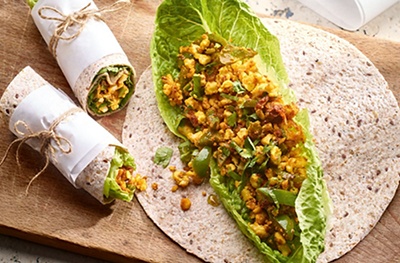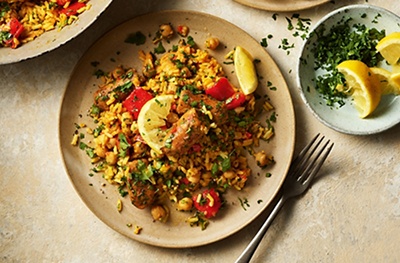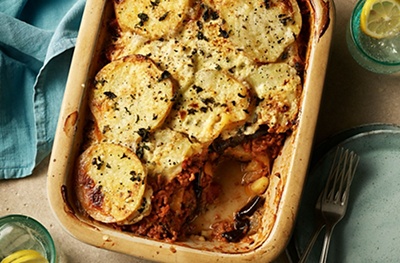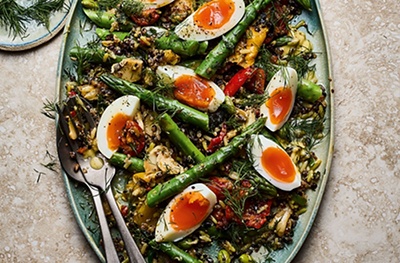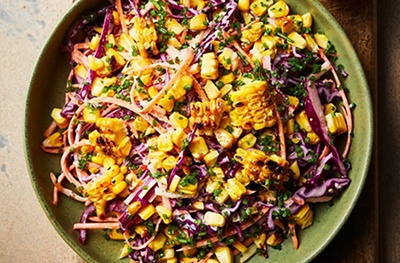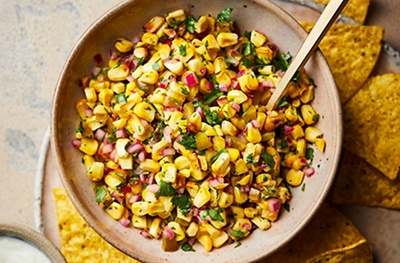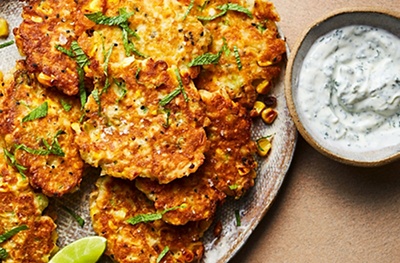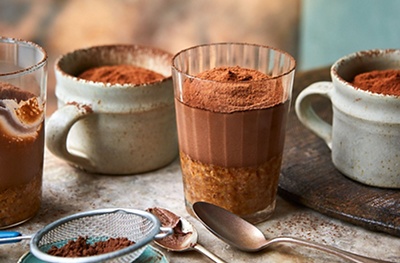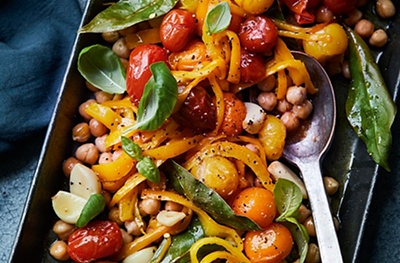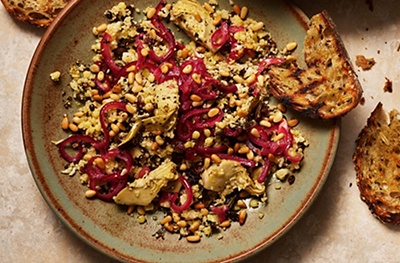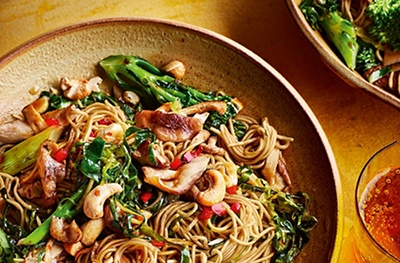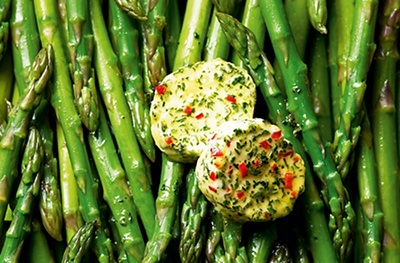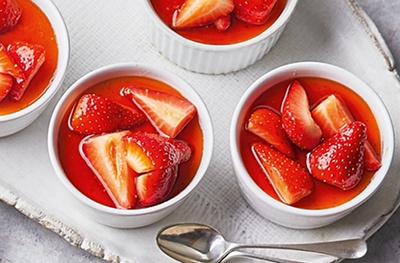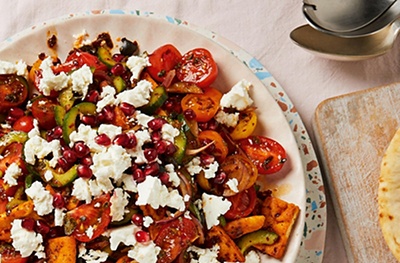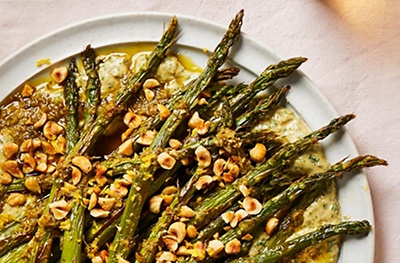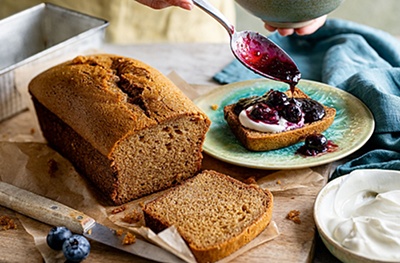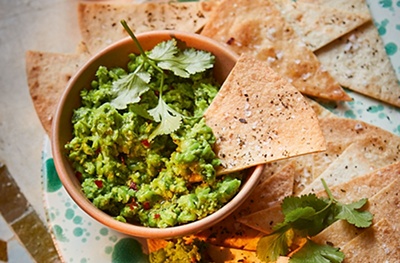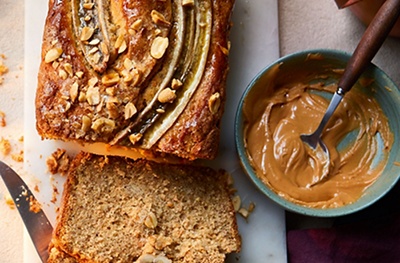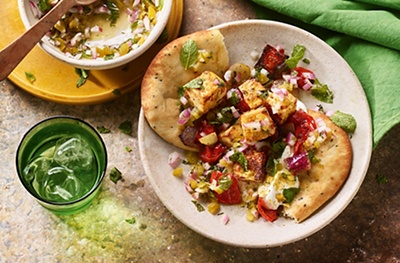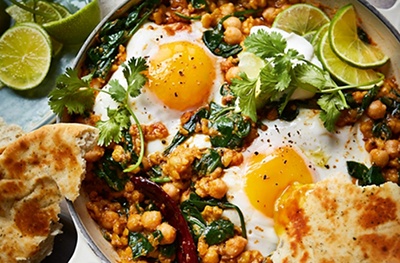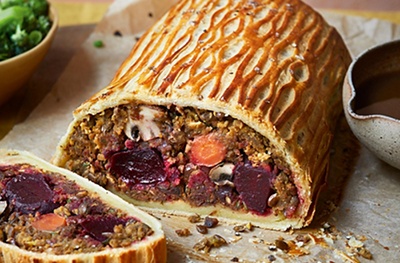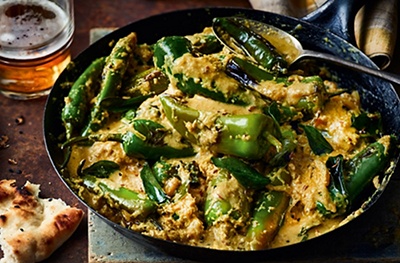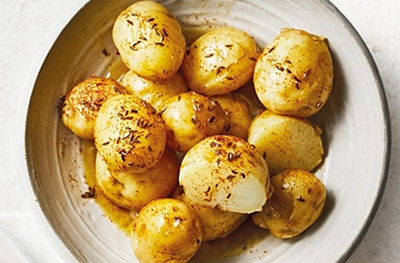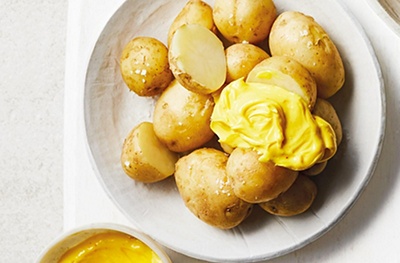Vegetarian recipes
Browse tempting recipes for every type of vegetarian diet. You can easily shop all our recipes too - find what you like and simply click to add to your trolley.
Filter
Sticky toffee flapjacks
Paneer frankies (wraps)
Easy mayonnaise cupcakes
Spiced pea-filled pastries
Red pepper & sweet potato curry
One-pot vegan no chorizo rice
Moussaka
Tofu katsu sando
Chargrilled vegetable & asparagus salad with jammy eggs
Welsh cakes
Charred corn & apple slaw
Caramelised corn & jalapeño salsa
Sweetcorn & halloumi fritters with mint yogurt
Little gem salad with chive vinaigrette, pickled red onions & crispy breadcrumbs
Mocha creams with amaretti crunch
Roast baby tomatoes & chickpeas with bay and garlic
Cauliflower couscous with artichokes & capers
Raspberry & vanilla swiss roll
Ginger, mushroom & broccoli noodles
Coriander, mint, chilli & lime plant b*tter
Dark chocolate torte with mint ice milk
Strawberry & rhubarb pie
Vanilla pots with strawberries & espresso caramel
Best-ever strawberry jam
Peach melba tatin
Fattoush-style salad with feta
Asparagus with green harissa & tahini
Asparagus tart
Greek yogurt & lemon loaf cake with blueberry sauce
Pea ‘guacamole’ with homemade tortilla chips
Mini lemon & rose cakes
Candied lemon peel
Chocolate cake
Peanut butter banana bread
Malted millionaire's slices
Garibaldi biscuits
Lemon iced buns
Leek & mushroom galettes Serves 4 with ‘cheesy’ pastry
Paneer, red onion & pepper traybake with mint and jalapeño salsa
Dal baked eggs with herby yogurt & naan
Cinnamon swirl muffins
Baked vanilla cheesecake with raspberry & rhubarb
Roasted radishes on whipped tahini
Pickled radishes
Beet & carrot Wellington
Apricot & custard cake
Green chillies in peanut & sesame sauce
Jackfruit stew with spices & orange
Caraway brown butter
Cardamom & carrot cupcakes
Saffron aioli
Tenderstem & vintage Cheddar tart with onion marmalade
Almond butter 'new potato' truffles
Chive & shallot salsa verde




